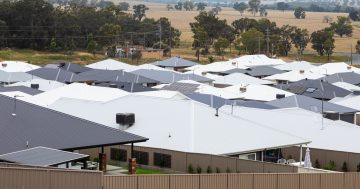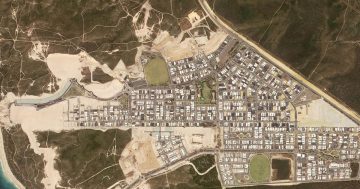
The new regulations aim to encourage WA property owners to transition from short-term stays to long-term rentals. Photo: iStock/rudi_suardi.
Western Australia’s Premier Roger Cook has announced a series of new reforms for un-hosted short-term accommodation aimed at better regulating the market and encouraging property owners to shift to longer-term rentals to boost housing supply.
Mr Cook said short-stay accommodation plays a vital role, but the reforms are necessary to address the impact it has had on rental affordability.
“Short-term rental accommodation remains an important part of Western Australia’s tourism offering,” he said.
“However, it is impossible to ignore the impact this increasingly popular type of accommodation has had on some local neighbourhoods and communities.
“My government has consulted extensively with industry, stakeholders and the community to develop these reforms, which will create a more level playing field with traditional accommodation providers while ensuring regulation is in place to manage impacts on neighbourhoods and housing supply for local communities.”
Under the reforms, all short-term rental accommodation (STRA) providers will be required to register their properties in a new state-wide registry. The registrations are expected to open in mid-2024 and all STRA properties will need to be registered by 1 January 2025.
Planning requirements will also be introduced for short-term rental properties in the Perth metropolitan area, including the need for planning approval for un-hosted properties. Approval from the local government will be required for un-hosted STRA that operate for more than 90 nights. In regional areas, including the Peel region, local governments will determine when planning approval is required.
In the Perth metropolitan area, un-hosted STRA property owners will be exempt from having to obtain development approval if the property is not rented for more than 90 nights in a 12-month period. If an un-hosted STRA will be rented for more than 90 nights in a 12-month period, the property owner must seek planning approval from the local government.
Property owners will be required to register all STRA properties in WA before being able to advertise and take bookings, including on online booking platforms.
Planning Minister John Carey said the regulations are not intended as a cap on short-stay accommodation.
“These reforms are a balanced approach in providing greater regulation of short-stay accommodation across the State and provide an incentive for property owners to move their short-stay properties to the long-term private rental market,” he said.
“Planning approval will only be required for un-hosted STRA in the metropolitan area, if it is intended to be let for more than 90 nights (inclusive) in a 12-month period.
“I want to be clear – this is not a cap – rather an exemption from the requirement to obtain development approval if a STRA property is rented for less than 90 nights over 12 months.”
A new six-month incentive scheme will also be rolled out to encourage property owners to transition their short-stay accommodation into the long-term rental market.
The scheme offers a $10,000 payment to property owners willing to switch their STRA properties to a long-term rental.
To qualify scheme, property owners have already been renting their property on a short-stay booking platform, such as Airbnb or Stayz, within the past six weeks. Applicants will be required to provide a minimum 12-month lease agreement to new, long-term tenants.
In order to protect tenants and ensure the new homes are affordable, there will be a maximum rent value, which is dependent on location.
For example, a maximum rent of $800 per week will apply in Perth (including Mandurah) and $650 in the South West.
Minister Carey said the WA Government understands regional markets differ and a varied approach is needed.
“The new STRA planning reforms will provide local governments guidance on STRA land uses in their planning schemes and frameworks,” he said.
“Our government recognises that regional markets can vary significantly and as such, require a localised response.”











